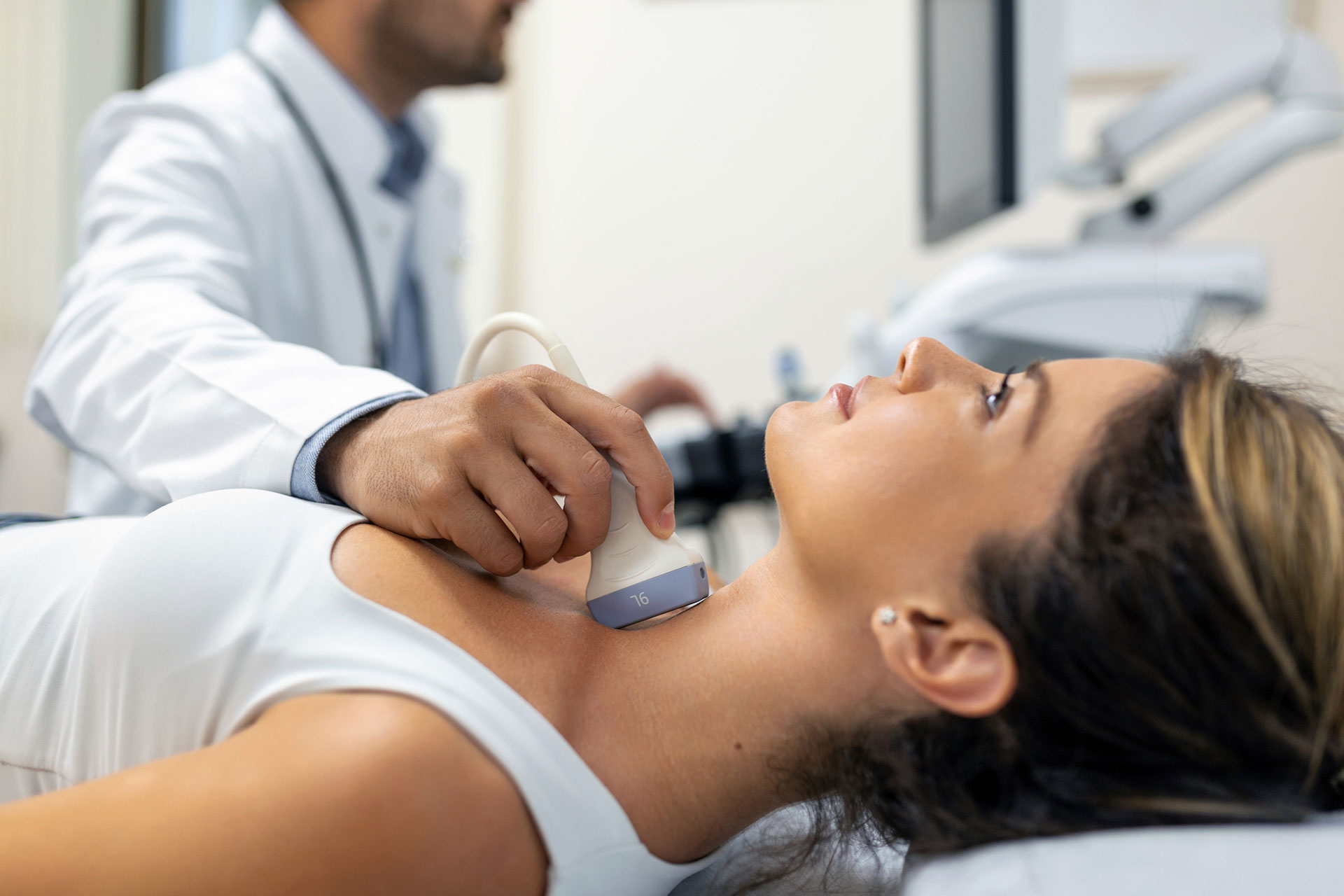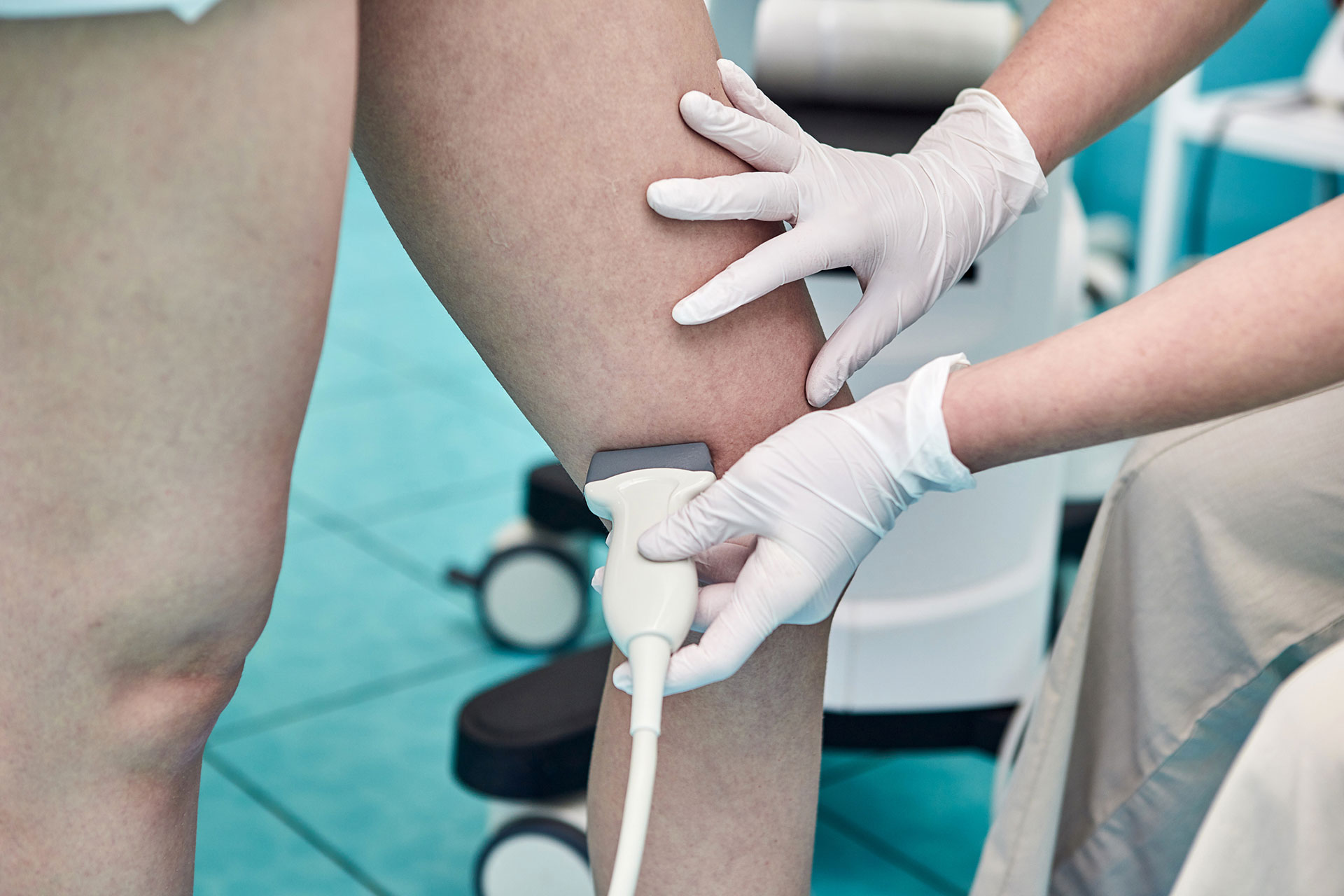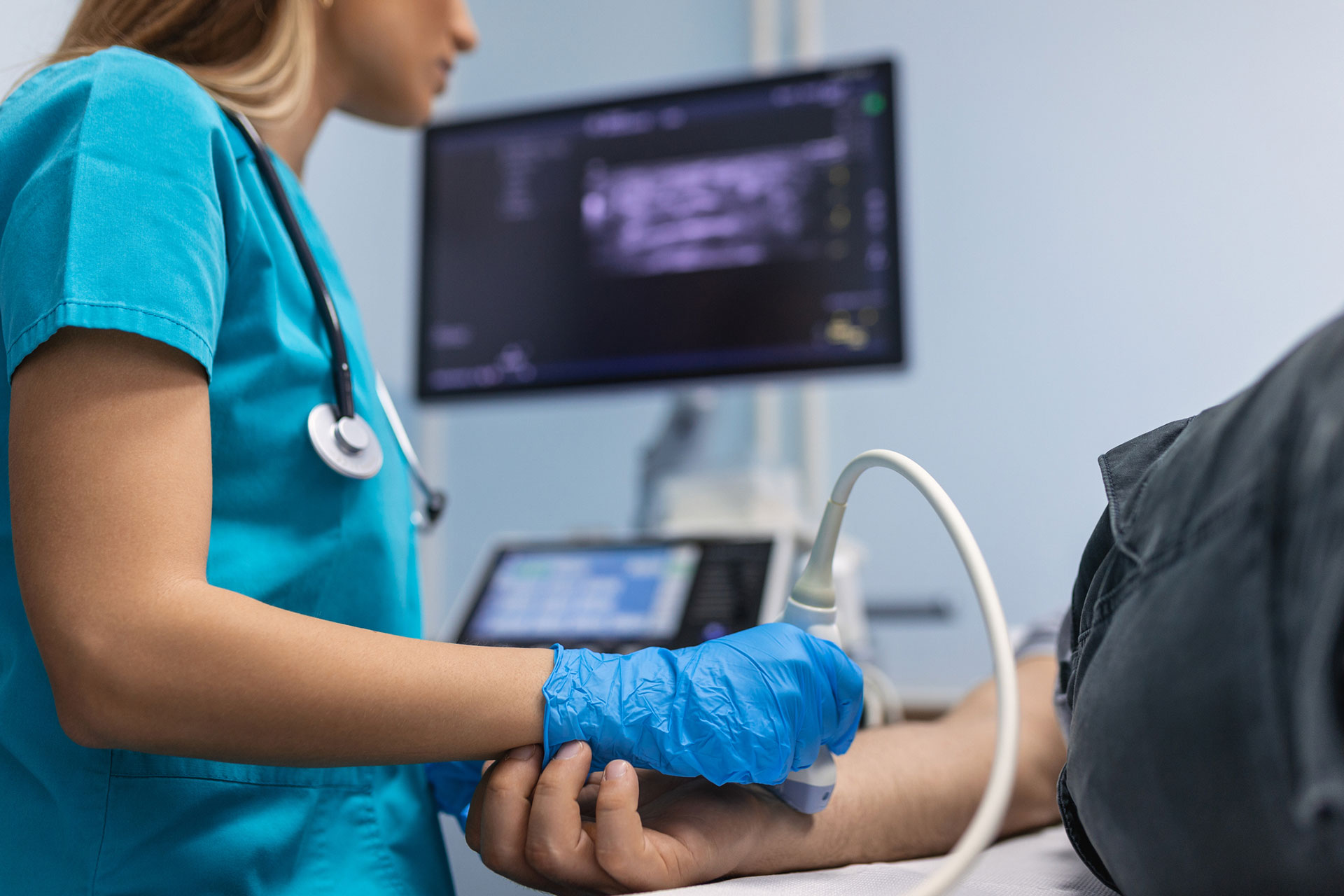
Vascular Studies
Comprehensive Vascular Tests
There is a wide range of diagnostic tests that may be performed to identify a number of vascular conditions, such as decreased blood flow or blocked blood vessels. Through these studies we are able to accurately diagnose the severity of your vascular issues.
If not detected and treated, circulation problems and blockages can lead to stroke, heart attack, or pulmonary embolism. At Premier Vein & Vascular, our goal is to prevent these life-threatening conditions. That’s why we offer a comprehensive battery of vascular tests at both of our offices in Tampa and Largo, Florida. Learn more about these tests below.
PAD Screening
Take our survey: Find out if you’re at risk for peripheral artery disease (PAD), aortic aneurysm, or stroke:
Cerebrovascular Evaluation
Comprehensive carotid duplex scanning involves imaging of the carotid arteries, which are located on both sides of the neck and provide blood and oxygen to the brain.
A noninvasive duplex ultrasound uses sound waves to create images of the arteries, measure blood flow speed, and identify blockages.
Blocked carotid arteries can lead to stroke.
Peripheral Arterial Evaluations
Ankle-Brachial Index (ABI)
The ankle-brachial index (ABI) compares blood pressure measurement at the ankle with that taken at the upper arm. It is used to determine whether there is adequate blood flow to the legs.
Typically, blood pressure is slightly lower at the ankle – but in cases of impaired circulation in the legs, the blood pressure measurement taken at the ankle may be only half that occurring in the upper arm.
Bypass Graft Interrogation
This refers to imaging done after a coronary artery bypass (or heart bypass) surgery to assess blood flow through the newly placed graft. A duplex ultrasound is typically used to scan an artery and measure blood flow.
Coronary artery bypass grafting involves using blood vessels from other areas of the body to create new routes around clogged arteries. It is one of the most common types of heart surgery performed on adults.
Cardiac Stress Testing
Cardiac stress testing is used to compare coronary circulation when at rest vs during exertion.
The three types of stress testing are nuclear (imaging blood flow with help of a radioactive dye), PET scan, and stress echo (monitoring blood pressure and heart rhythm while exercising on a treadmill or stationary bike).
Color-Flow Doppler Duplex Scanning
A duplex ultrasound includes traditional ultrasound; technology, in which sound waves bounce off veins to create an image of them, plus Doppler technology that allows measurement of moving objects, such as blood flow, within the body.
The color-flow version of this scan shows blood flow speed in color for easy visual identification of circulation problems.
Digit Plethysmography
This is a noninvasive measurement of how well blood is flowing into the fingers and toes via the arteries.
A plethysmography measures volume. In this type of test, blood pressure cuffs or other sensors are placed on the fingers and/or toes. The sensors record the pulse waves that occur with each heartbeat; in this way, changes in pulse volume are measured and graphed.
Digit plethysmography may be used to diagnose artery blockages or Raynaud's disease, which involves an abnormal constriction of blood vessels.
Segmental Limb Pressures and Blood Flow Velocity Waveform Analysis
This examination of the lower extremities combines Doppler ultrasound – which can measure the speed of blood flow in the body – with blood pressure measurements of the limbs (for example, at the thighs, calves, and ankles) to identify possible blockages in arteries. Comparing differences in blood pressure at different locations helps identify circulation problems.
Peripheral Venous Evaluations
Duplex Venous Evaluation
A duplex venous ultrasound is a noninvasive imaging test in which sound waves are used to create pictures of veins and measure the speed of blood flow.
Valve Closure Assessment
Four valves guide blood flow in a forward direction through the heart: the aortic, pulmonary, mitral, and tricuspid. These valves may become narrowed, restricting blood flow, or they can malfunction and not close properly, causing blood to leak.
Heart valve problems can be diagnosed in a number of ways.
A doctor will listen to your heart for the sounds that may indicate blood flow problems. Additional diagnostic tests that may be run as part of the overall assessment include magnetic resonance imaging (MRI), echocardiography, and/or angiography (when a catheter is guided through the arteries for a clear visual representation of blood flow inside the blood vessel).
Problems with the heart valves can lead to heart failure.
Vein Mapping for Bypass Grafts and Dialysis Access
Vein mapping utilizes ultrasound technology to determine whether veins in the leg, for example, are suitably healthy to be used by a vascular surgeon in a procedure such as a bypass graft surgery (to replace a diseased vein elsewhere in the body). It may also be used to evaluate the condition of the veins in a patient’s forearm to determine which method of arteriovenous (AV) access for dialysis is appropriate.

Abdominal Visceral Evaluations
Aortic Duplex for Aneurysm
In this diagnostic procedure, a duplex ultrasound – which uses two types of ultrasound technology to create images of internal structures and measure moving objects (such as blood) – is used to image the aorta, the major artery from the heart, to check for the presence of an aneurysm.
An aortic aneurysm, or dilated section of the artery, can occur in the chest or abdomen and may result in internal bleeding and stroke.
Mesenteric Artery Ultrasound
This is an ultrasound imaging test that evaluates blood flow in the mesenteric arteries, which supply blood to the intestines. Obstructed blood flow in the mesenteric arteries can cause abdominal pain, vomiting, and diarrhea.
Portal Vein Assessment
This type of ultrasound examines the portal venous system, which carries blood from the spleen, pancreas, and gallbladder to the liver.
Renal Artery Duplex Ultrasound
A duplex ultrasound uses sound waves to produce images of internal organs as well as measure the speed and other characteristics of moving bodies such as blood flow. When it is used to examine the renal arteries, which deliver oxygen-rich blood from the heart to the kidneys, it is called a renal artery duplex ultrasound.
If you suspect you have a circulation problem, you’ll want to see the vascular specialists at Premier Vein & Vascular. Make an appointment so you can be properly diagnosed by calling 1-888-VEINCARE or use our convenient online appointment request form.

